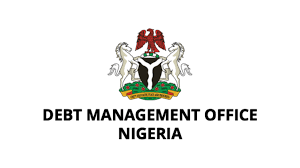The Federal Government has successfully repaid its first-ever Sovereign Sukuk of N100bn, issued in 2017, thus fulfilling all obligations to investors and reinforcing its commitment to transparent and responsible debt management.
This milestone was announced on Monday at the investor meeting hosted by the Debt Management Office in Abuja, during the formal issuance of a new N300bn Series VII Sukuk.
It was disclosed that all investors in the 2017 Sukuk have received full redemption of their investments, having earlier been paid their rental returns.
The structure of the Sukuk issuance ensured that the Central Bank of Nigeria, serving as the Paying Agent, distributed periodic rental payments to Sukuk holders on scheduled dates. Upon maturity, the government repurchased the underlying road assets, and the principal amounts were transferred in bulk to the Sukuk holders, concluding the investment cycle.
At the issuance event, the Director-General of DMO, Ms Patience Oniha, addressing investors, acknowledged recent macroeconomic improvements, including the upgrade of Nigeria’s credit outlook by Fitch Ratings. She noted that these developments point to progress in both fiscal and monetary management.
“It’s a journey,” Oniha said, referring to the path toward sustainable growth. “Development doesn’t happen in one day, but current policies are steering the country in the right direction.”
She linked part of this progress to recent reforms by the Central Bank of Nigeria, especially those targeting the foreign exchange market.
According to Oniha, the volatility that previously plagued the naira has eased considerably since the fourth quarter of last year, thanks to sweeping policy interventions.
“There’s more transparency now. FX supply has improved, and the rates have become more stable. Some of the measures were difficult at first, but the benefits are beginning to show,” she said.
Turning to the oil sector, Oniha expressed optimism that recent presidential initiatives will further strengthen revenue from oil and gas, which remain a significant component of national income.
Commenting on Nigeria’s public debt, she said the total debt stock stood at N144.67tn as of December 2023, nearly evenly split between external and domestic components.
She explained that a major factor in the growth of the debt stock was the depreciation of the naira, which caused the value of dollar-denominated debts to increase when converted to local currency.
“The external debt has remained around $42.5bn, only rising slightly after a $2.2bn Eurobond in December. But due to the weaker naira, the debt stock in local terms appears higher,” Oniha said.
She also noted that the inclusion of Ways and Means advances—amounting to N30tn—has contributed significantly to the total debt figures. These are approved borrowings by the government to cover budgetary shortfalls and are officially included in the debt records.
Oniha reassured investors about the structure and sustainability of Nigeria’s debt. She pointed out that the country’s external borrowing is sourced from a diversified pool, including multilateral institutions like the World Bank and African Development Bank, bilateral partners such as China, India, and Germany, and commercial markets such as the Eurobond space.
“Over 60 per cent of our external debt is from multilaterals and bilaterals, which offer more favourable terms than commercial debt. This diversification reduces our exposure to market shocks and provides stability,” she explained.
On the domestic side, Oniha described the government’s bond market as very active, with a range of instruments like Treasury bills, Federal Government Bonds, Savings Bonds, and Sukuk issued regularly.
“There’s something for everyone,” she said. “Whether you are a large institutional investor or a salary earner, there’s an appropriate investment product available. And this variety also means the government is not dependent on one single funding source.”
She further noted that domestic debt instruments have long tenures—some spanning up to 30 years—and are a key component of the country’s funding strategy.
According to her, over 70 per cent of Nigeria’s domestic debt is issued by the federal government.
In assessing the health of Nigeria’s debt profile, Oniha stated that while the debt-to-GDP ratio has crossed 50 per cent, it still remains within acceptable limits prescribed by international benchmarks, including those of the IMF, World Bank, and ECOWAS.
“Public debt sustainability is not just about the size of the debt,” she said. “It’s about growing revenues and expanding the GDP. As the economy grows and tax revenues increase, our ability to service debt also improves.”
She commended the National Assembly for passing recent tax bills that are expected to enhance revenue collection and reduce pressure on borrowing. These developments, alongside improved oil receipts and foreign exchange reforms, are laying the foundation for more sustainable public finance.
The issuance of the new N300bn Series VII Sukuk is part of the government’s broader infrastructure financing strategy. Proceeds will be used to fund road projects across the country, continuing the legacy of previous Sukuk issues that have helped transform Nigeria’s transportation network.
The DMO assured of its commitment to investor engagement and transparency, adding that future Sukuk issuances will maintain the same principles of Islamic finance that prohibit interest and ensure asset-backed, ethical investing.
In recent years, Sukuk has emerged as a critical funding tool for Nigeria, attracting both domestic and foreign investors while supporting infrastructure development. The DMO’s successful record of timely coupon payments and redemptions has helped boost investor trust in Nigeria’s debt instruments.















